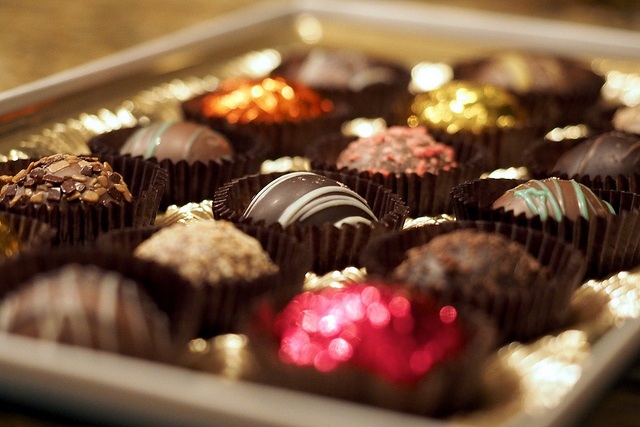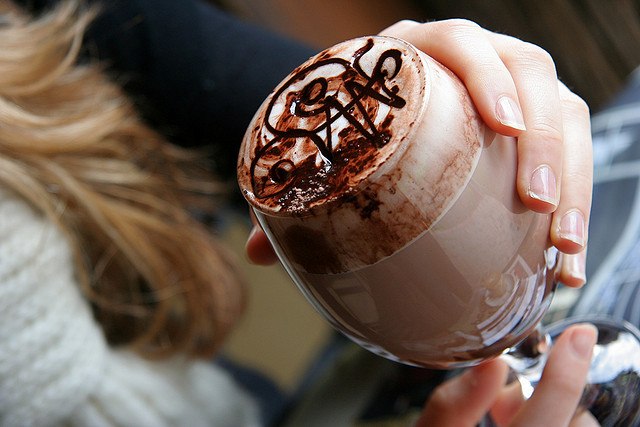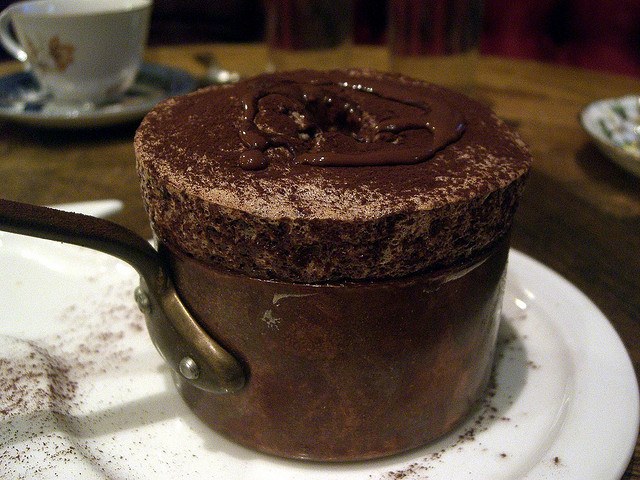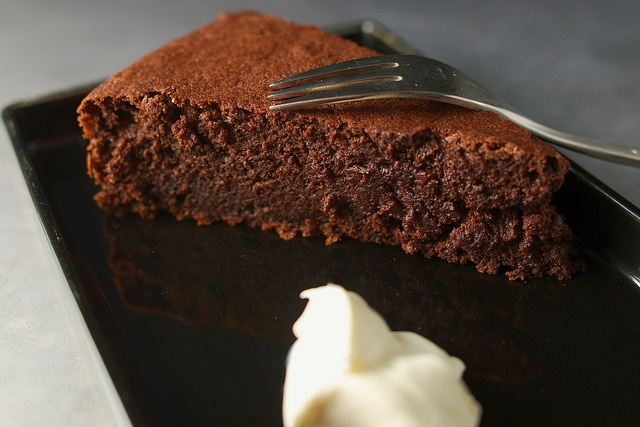I have to make a confession. I am a chocoholic! I promise that this article will be as balanced as possible but if there is some bias, I am sure you will forgive me.
The Aztecs and the Mayan people of Central America highly valued the cacao plant and its seeds. It seems that the Nahuatl language had the word ‘xocolatl’ for a cocoa drink which means ‘bitter water’.
Interesting also to look at who eats the most chocolate globally. The Germans are top of the list as their annual per capita consumption is a whopping 11.39 kg (25.11 lbs) while the US consumption is less than half of that at 5.09 kg (11.22 lbs).
There are lots of myths about chocolate and we were all told that chocolate could make you obese, give you acne, toothache and headaches, not to mention insomnia!
It’s time to debunk some of these myths and get the facts right. You will be pleasantly surprised.
1. Chocolate will keep you awake
The people who spout this myth are trying to tell you that chocolate contains loads of caffeine and that is going to give you a sleepless night! This is false, as the actual amount of caffeine in a chocolate bar is about the same as that of a cup of decaffeinated coffee. The cocoa bean contains only about 0.5% caffeine while dry coffee beans have 1.2% caffeine.
2. Chocolate makes kids bounce off the walls
This is an interesting myth, because the fact is that parents were expecting their kids to be hyper after a sugar or chocolate fix and so they were, according to them. The reality was quite different as the BBC discovered. There is no firm evidence to show that too many sweet things will make the kids bounce off the walls.
3. Chocolate could give you a stroke
Recent studies have turned this on top of its head. Provided you eat moderate amounts of dark chocolate (74% of cocoa solids), you could cut the risk of stroke by 22%. Those people who did get a stroke (not from eating chocolate!) were 45% less likely to die if they had consumed moderate amounts of chocolate on a regular basis.
4. Chocolate will give you acne
Teenagers are usually told this but there is no scientific evidence at all that this is the case. If there is too much sebum, then this could block pores and lead to acne. But all the studies done so far have debunked this theory and there is simply not enough evidence to support it. There were 21 studies done and not one of them was able to point the finger at chocolate although dairy products did not do too well. Just have some dark chocolate instead of milk chocolate!
5. Chocolate will give you cavities
They say this because chocolate has a high sugar content, although you can sidestep that issue by going for dark chocolate instead of white or milk chocolate which are usually sweeter. But the great thing about chocolate is that it melts quickly in the mouth, so that there is not much time for bacteria to form which might cause cavities. Actually, the cocoa butter acts as a sort of protective barrier which also prevents the bacteria getting the upper hand. Fluoride is also one element in chocolate and that is also useful in protecting teeth, as we know.
6. Chocolate is an aphrodisiac
Lots of old wives’ tales about the power of chocolate as a sexual stimulant but there is no scientific evidence to back it up at all. Casanova is thought to have been a great fan of chocolate but studies have not shown that chocolate can affect your libido or sexual prowess in any way.
7. Chocolate will not affect your mood in any way
Your good mood depends on the serotonin chemical, which works as a neurotransmitter, which can help boost your mood and avoid mood swings. This may be a problem for women going through the menopause. Now, chocolate can help because it contains tryptophan which can stimulate the production of serotonin, so the positive effects on mood are notable.
8. Chocolate will make you fat
Yes, it will, if you eat lots and lots of it! But in moderation, chocolate can help you in many ways. For example, did you know that a single portion of 70% chocolate can give you the same amount of protein that you would get from a cup of broccoli? It also can give you fiber and also some of the healthy fats in the cocoa butter. All this means that you feel full and you are not subject to so many cravings.
Chocolate also has polyphenols together with tryptophan which can improve your mood. It also makes you feel less stressed out and that can make the whole weight loss adventure more relaxed. In addition, chocolate contains epicatechin which boosts the metabolism, which will help you to burn off calories.
9. Chocolate can be bad for your cholesterol
Not true at all. Some fatty acids are good for you, others are not. Let us have a look at which fats are in chocolate. Most of it comes from the cocoa butter. There are three different types. One is oleic acid which is also found in olive oil and is actually great for your heart . The other one is palmitic acid (about 33%) which can increase the bad cholesterol (LDL) and clog up arteries. The good news though is that main fatty acid in chocolate is stearic acid and it seems to have a neutral effect on cholesterol, and does not have any effect on the LDL or HDL levels. So, having chocolate in moderate quantities is not going to affect your cholesterol one way or the other. Did you know that a serving of unsweetened cocoa has 0 grams of saturated fat?
10. Chocolate could give you a heart attack
Another myth still doing the rounds! But guess what studies carried out by Harvard University School of Public Health showed? They looked at 136 studies on chocolate and its effects on cardiovascular health. All these studies seem to suggest that there is a lower risk of heart disease when chocolate is part of your diet, again in moderate quantities. They found that it lowered blood pressure and also had an anti inflammatory function, both important for a healthy heart.
11. Chocolate can become an addiction
Don’t worry – my chocolate habit is under control! But many people are convinced that you can become addicted to it. This would be true if you started eating several bars a day and also which type you were hooked on.
The fact is the addictive elements, such as theobromine and cannabinoids, are present in chocolate but in very small quantities. In order to become addicted you would have to eat up to 17 ozs of it every day for quite a while!
Now that we have debunked the 11 most notorious myths about chocolate, why not tell us why you like chocolate so much?
Featured photo credit: various chocolates as a background – sweet food via shutterstock.com
















































